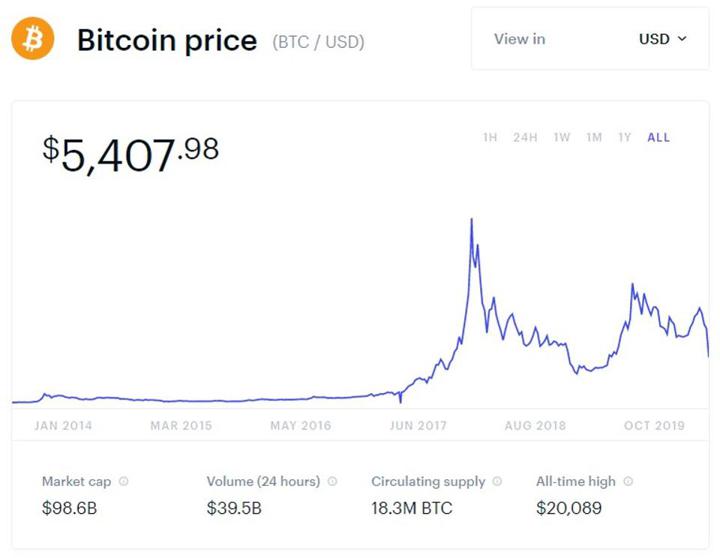Bitcoin is, according to some, facing its first great test – whether it can perform as a store of value during a wider market crash, wrote Billy Bambrough in an article for Forbes.
Bitcoin has, by this measure, failed spectacularly. The bitcoin price collapsed in the face of coronavirus-induced chaos, losing around half its value as traditional markets recorded historic falls.
But this isn’t make or break for bitcoin: the leading crypto’s success isn’t judged by its price but by its digital scarcity in a time of helicopter money, quantitative easing (QE) and record low interest rates.
Earlier this week, the US Federal Reserve slashed interest rates to almost zero and fired a $1 trillion stimulus bazooka in an attempt to protect the world’s largest economy from a coronavirus-induced shutdown.
This followed similar interest rate cuts around the world as governments and central banks scrambled to reassure markets. The rushed action largely failed, with the Dow suffering its worst day since the Black Monday market crash in 1987 and its third-worst day ever.
Today, US Treasury secretary Steven Mnuchin said he was poised to write checks to millions of Americans to try to offset the economic burden of the coronavirus pandemic – an unconventional economic stimulus measure that’s been popularized recently by some left-leaning economists as universal basic income (UBI) but was once known as helicopter money: freshly-printed cash that appears to drop from the sky into the pockets of the public (a concept some crypto investors will be familiar with).
“We are looking at sending checks to Americans immediately,” Mnuchin said, speaking at a White House press conference. “Americans need cash now, and the president wants to get cash now – and I mean now in the next two weeks.”
Helicopter money
Elsewhere, Spain is apparently weighing similar helicopter money style stimulus -something that could play havoc with the economically joined-up eurozone.
Many traditional economists dislike helicopter money. They say it’s harder to remove from the system and could cause long-term inflation to soar.
The world’s central banks are being forced to consider such extreme options due to the lingering effects of the 2008 global financial crisis, with many of their less radical policy tools still in effect.
“The US is about to be addicted to that helicopter money really fast,” bitcoin proponent and co-founder of hedge fund Morgan Creek Digital, Anthony Pompliano, said via Twitter.
Meanwhile, some market watchers are worried the broad sell-offs, combined with helicopter money proposals, could cause a cash glut.
“At the moment, what we’re seeing from the market is an unprecedented move to cash,” said Mati Greenspan, founder of financial advisory firm Quantum Economics.
“Everyone is liquidating everything they can. Once the dust settles, and we start to see how the end of the ‘coronacrisis’ might look, people are going to be sitting on way too much fiat.”
-
![]()
The bitcoin price has given up almost all the gains it made last year.
“Bitcoin is built for these events,” said Keld van Schreven, co-founder and managing director at blockchain investment firm KR1.
“Bitcoin, ether and other crypto networks needs no bail out or QE. They just need a handful of servers to run, verify and complete transactions. Bitcoin, ether and other crypto has taken the weakest link (us) out. This only makes it stronger.”
Whatever the bitcoin price does, it can’t be artificially boosted by central banks or governments – it will only be supported by increased demand.
More bitcoin can’t be printed or pasted from a clipboard. Bitcoin is, regardless of its extreme price volatility, consistency in inconsistent times.

























